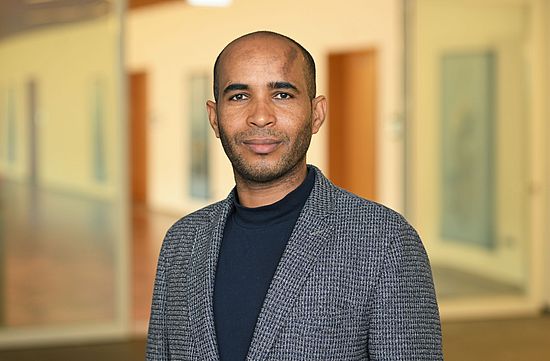Navigating Contested Identities and Dynamics of Belonging: Ethnic and National Identity Negotiations within the Ethiopian Diaspora in Switzerland
Project Description
The doctoral research examines the relationship between contested identities and belonging dynamics within the Ethiopian diaspora. Despite the maintenance of strong connections to Ethiopia and a sense of Ethiopian national identity, ethnic affiliations have given rise to tensions that impact Ethiopians’ sense of belonging in the diaspora. This is particularly evident in the Ethiopian communities in Switzerland. This study examines the negotiation of ethnic and national identities in the context of past and present political circumstances, including ongoing conflicts in Ethiopia's Amhara, Tigray, and Oromia regions, and their impact on the diaspora community. Ethiopian diasporic national identity is shaped by the home country’s political circumstances, with ethnic affiliations contributing to the emergence of divisions and ethnic tensions. Therefore, the broader political context in Ethiopia influences the relationship between national and ethnic identities among Ethiopian communities living abroad by affecting their experiences and expressions of identity. The Tigray conflict and other ethnic disputes have exacerbated the ethnic divisions within Ethiopia and its diaspora.
This doctoral dissertation will answer two main questions: 1. How does the Ethiopian diaspora perceive and negotiate contested Ethnic and National identity? 2. How do contested identities shape the dynamics of belonging in the Ethiopian diaspora community in Switzerland?
To answer these questions and gather data on the experiences and perspectives of Ethiopian diasporas in Switzerland, qualitative methods, including in-depth interviews and participant observation is deployed. The existing literature indicates that while the diaspora maintains a strong national identity, ethnic affiliations and Ethiopia's political circumstances exert a significant influence on their sense of belonging and self-perception. This study contributes to the wider debate on transnationalism, transnational diaspora politics, and identity negotiation, and offers insights into the Ethiopian diaspora.
Supervisor: Prof. Dr. Andreas Heuser
Co-Supervisor: Prof. Dr. Elisio Macamo
Biography
Berihun Wagaw was born and raised in northern Ethiopia. In 2011, he earned his BA in Civics and Ethics from the University of Mekelle, Tigray, Ethiopia. In 2017, he completed his MA in Political, Legal and Economic Philosophy from the University of Bern, Switzerland. From October 2018 to June 2023, Mr. Wagaw was employed at the University of Applied Sciences and Arts Northwestern Switzerland (FHNW) as an intern and later as a research assistant. His work at FHNW included participation in several research projects and activities related to migration, refugees, asylum, integration, neighbourhoods, social spaces, and community development.
Areas of research/ research focus
My research areas focus on African studies, political and legal philosophy, ethics, religion, identity, conflict and belonging, migration, refuge, asylum, integration, community development, Diaspora, and transnational diaspora politics and activism.
List of publications
Negash, S., Wagaw, B., & Drilling, M. (2023). Soziale Arbeit mit Geflüchteten im Kontext von Quartier und Nachbarschaft: in der Soziale Arbeit und Integrationspolitik in der Schweiz. Professionelle Positionsbestimmungen, Seismo Verlag, Zürich.
Dittmann, J., Drilling, M., Wagaw, B., Negash, S., & Käser, N. (2023). Die Nachbarschaft als Türöffnerin. Sozialwirtschaft, 33(6), 16–18. https://doi.org/10.5771/1613-0707-2023-6-16
Dittmann, J., Drilling, M., Negash, S., Wagaw, B., & Käser, N. (2023). Geflüchtete im Spiegel der Integrationsagenda. Zeitschrift für Sozialhilfe ZESO. 4 September 2023. Nr. 3, S. 32–34. Verfügbar unter: https://irf.fhnw.ch/handle/11654/43622
Wagaw, B., Negash, S., & Drilling, M. (2023). Nachbarschaft: Eine unterschätzte Gelegenheitsstruktur der Integration. In SozialAktuell, August 2023. https://avenirsocial.ch/wp content/uploads/2023/08/SA_06_23_004_004_Inhaltsverzeichnis__nur_PRINT_low-1.pdf
Drilling, M., Negash, S., & Wagaw, B. (2021). Housing and the Social Investment State: An Underestimated Relationship. In Special Issue: Social Policy and Housing: Insights from Europe and Greece. Κοινωνική Πολιτική, 14(0), 35–49.
Wagaw, B., Drilling, M., & Negash, S. (2020). Youth Transition Regime in Switzerland, Social Investment and Youth Oriented Social Policies: In Youth-oriented policies beyond ideal – typical welfare regimes in Europe: Situation and initiatives from the perspective of youth transitions regimes.
Drilling, M., Negash, S., Wagaw, B., Brugger, C., & Esteves Flores, C. (2022). Intergrationszentrum Kanton Aargau. Grobkonzept “Integration und städtischer Raum”. Hochschule für Soziale Arbeit FHNW, Institut Sozialplanung, Organisationaler Wandel und Stadtentwicklung. https://doi.org/10.26041/fhnw-5993
Drilling, M., Brugger, C., Wagaw, B., & Negash, S. (2022). Integrationszentrum Kanton Aargau. Grobkonzept “Integration und städtischer Raum”. Teilbericht I: Akteursbefragung und Akteursworkshop. Hochschule für Soziale Arbeit FHNW, Institut Sozialplanung, Organisationaler Wandel und Stadtentwicklung. https://doi.org/10.26041/fhnw-5994
Drilling, M., Brugger, C., Wagaw, B., Negash, S., & Esteves Flores, C. (2022). Grobkonzept «Integration und städtischer Raum». Teilbericht II: Bewohnende der kantonalen Unterkünfte - Befragung und Workshops. Hochschule für Soziale Arbeit FHNW, Institut Sozialplanung, Organisationaler Wandel und Stadtentwicklung. https://doi.org/10.26041/fhnw-5995

Berihun Wagaw
Graduate School of Social Sciences
Petersplatz 14
4051 Basel
e-mail: berihun.wagaw@clutterunibas.ch
Quick Links
Social Media
